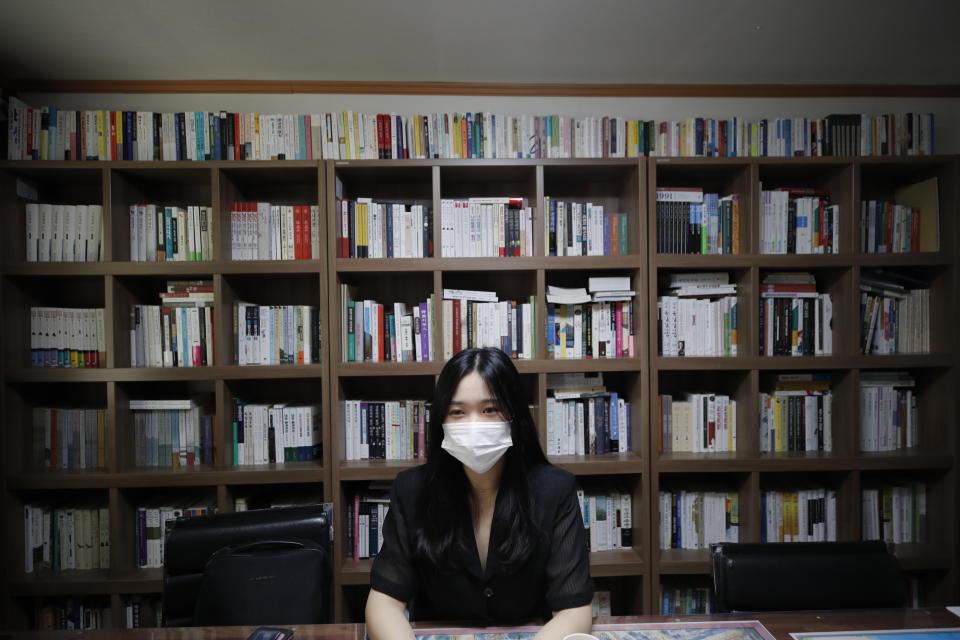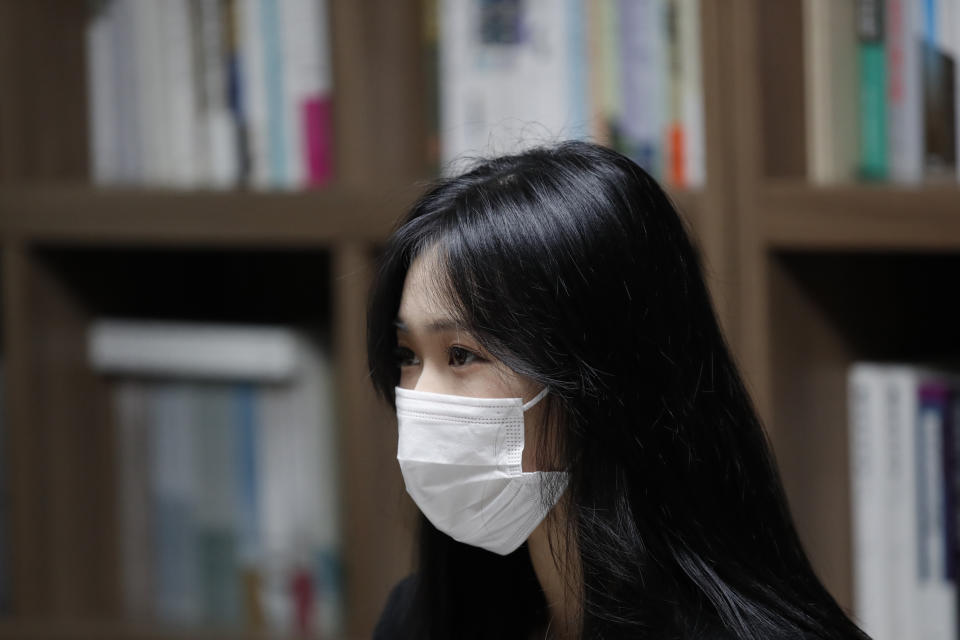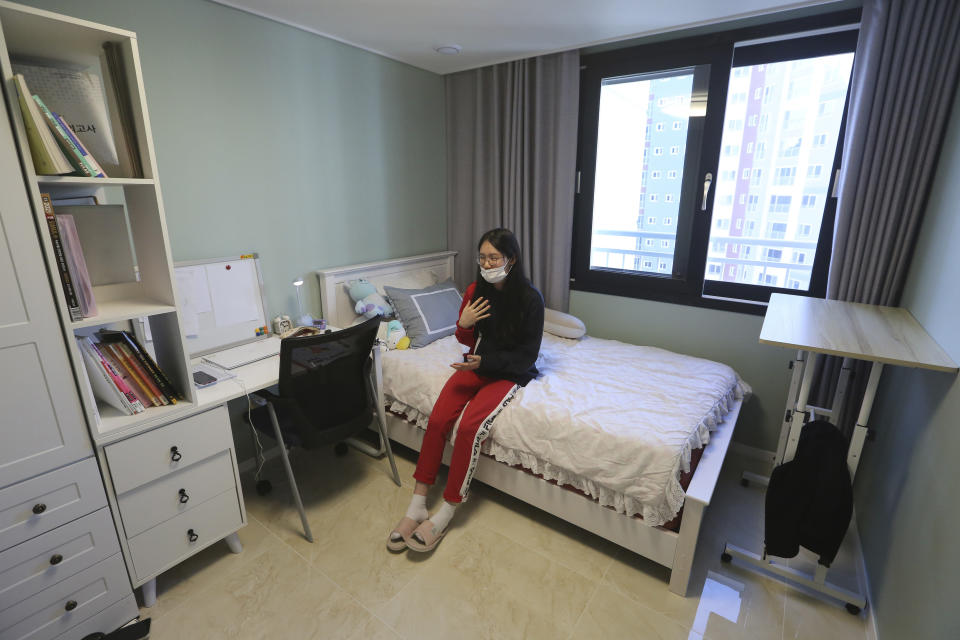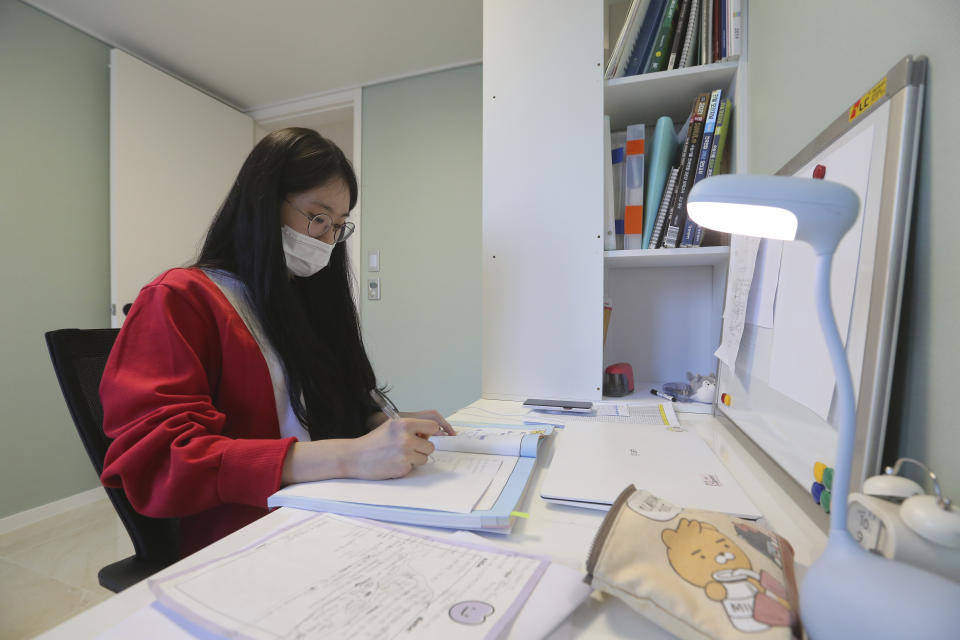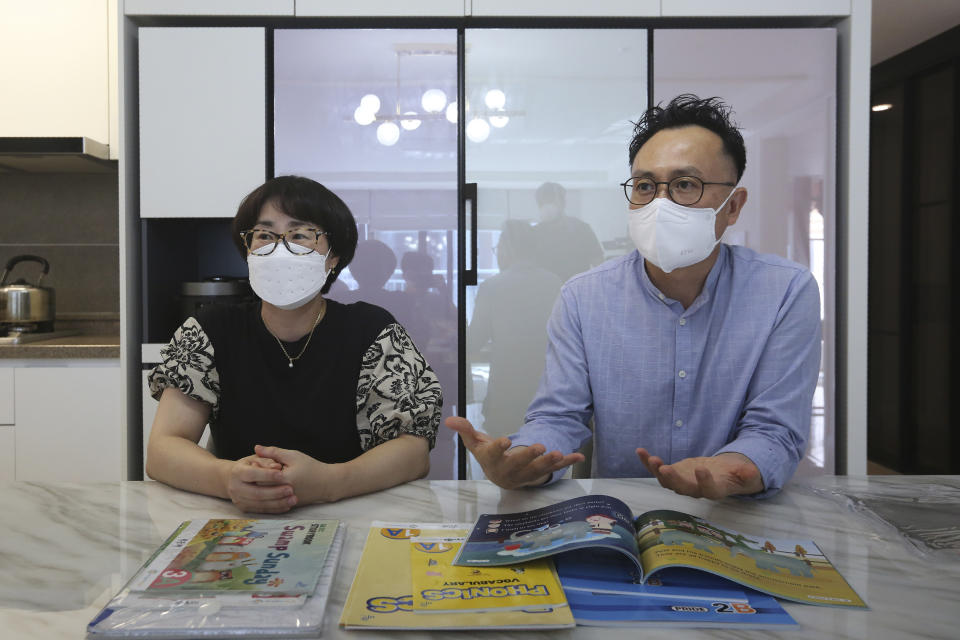SEOUL, South Korea (AP) — When South Korea began its delayed school year with remote learning in April, that spelled trouble for low-income students who rely on public education, get easily distracted and cannot afford cram schools or tutors used by many in this education-obsessed country.
Students like Han Shin Bi, who struggled to concentrate.
“Online classes were really inconvenient,” said Han, a high school senior in Seoul. “I ended up with a bad grade (in an exam) because I didn’t really focus on studying while online. It was a blow.”
Like legions of other students around the world, kids in South Korea are struggling with remote learning, taking online classes off-and-on from home as the nation battles the coronavirus pandemic.
Experts say the reduced interaction with teachers, digital distractions and technical difficulties are widening the education achievement gap among students in South Korea, leaving those less well off, like Han, at even more at a disadvantage.
Students who were doing well before the pandemic, often from middle- and upper-class families, have an easier time keeping their grades up and plenty of family support if they run into trouble.
In South Korea, Asia's fourth-largest economy, which university you attend can determine nearly everything about your future: career prospects, social status and even who you can marry.
“One’s academic background doesn’t always match his or her capacity. But an incorrect view that they are the same is prevalent in this society,” said Gu Bonchang, a policy director at the World Without Worries About Shadow Education, an education NGO in Seoul.
A government survey of 51,021 teachers released last month showed about 80% of respondents saw a widening gap between their strongest and weakest students. To address the problem, the Education Ministry has hired part-time instructors to help 29,000 underprivileged students at elementary schools. Some teachers have been assigned to work one-on-one temporarily with about 2,300 high schoolers who are struggling.
With teachers mostly posting prerecorded lectures online, Han couldn't ask questions in real time, and her family cannot afford to hire a tutor or send her to a cram school, like most of her friends.
“I don’t want to compare myself with others,” she said. “But If I had had lots of money, I think I could have learned many things (after school) . . . and I actually wanted to learn English and Chinese at cram schools.”
Even some model students say distance learning is tough.
“I felt I was trapped at the same place and I got lots of psychological stress,” said Ma Seo-bin, a high school senior at an elite, expensive foreign language school near Seoul. “What was most difficult is that I didn't have my friends with me, so it was hard to be dedicated to my studies."


